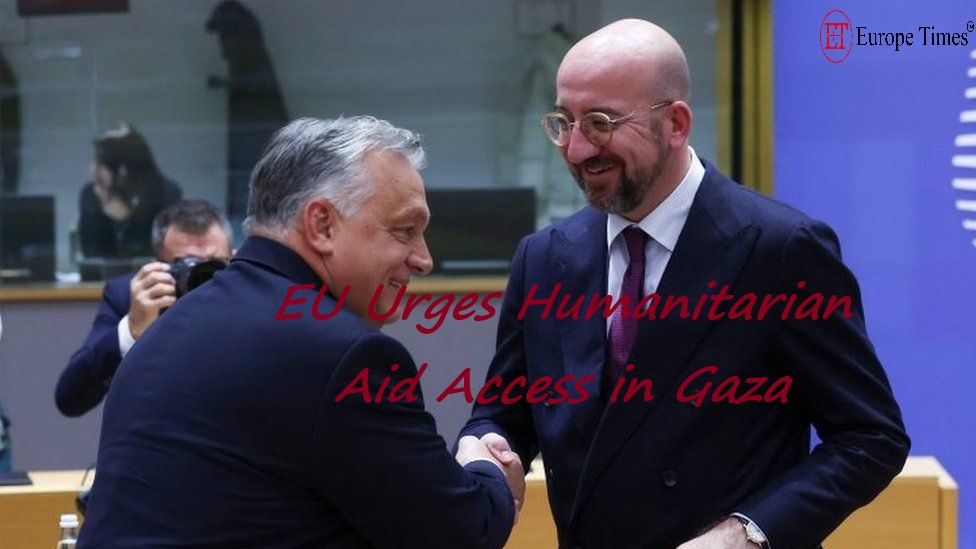Israel Gaza: EU calls for ‘corridors and pauses’ for humanitarian aid

EU leaders have urged the establishment of “corridors and pauses” to ensure the delivery of crucial humanitarian aid to Gaza. Following lengthy discussions in Brussels, the leaders issued a joint statement emphasizing the necessity of safe and unimpeded access. Disagreements among member states had previously centered on the duration and structure of these pauses, with some advocating for a longer, singular cessation of hostilities.
In response to Hamas’s attack that led to significant casualties, Israel initiated airstrikes and imposed blockades on essential supplies, exacerbating the humanitarian crisis. The health system in Gaza, operated by Hamas, has been strained to the brink, with a large number of casualties and a shortage of functioning medical facilities.
Although the aid reaching Gaza has been limited, the recent statement from the EU leaders represents a compromise among the diverse views of the 27 member states. The use of “humanitarian pauses” as brief intervals aims to allow the EU to work with regional partners to provide essential resources without being exploited by terrorist organizations, as clarified in the statement.
The decision to use the term “pauses” rather than “pause” was a result of delicate negotiations. The former was considered less likely to imply a permanent ceasefire, thereby acknowledging Israel’s right to self-defense. Notably, certain member states, including Hungary, Austria, the Czech Republic, and Germany, which holds a strong pro-Israel stance, played a significant role in shaping the statement’s wording.
While some countries expressed disappointment at the absence of a specific call for a ceasefire, there was approval for the addition of a new line supporting the organization of an international peace conference. The proposed conference aligns with the Spanish caretaker Prime Minister Pedro Sánchez’s earlier call for an international peace summit to address the long-standing conflict in the region.
Given that the EU lacks military authority, its influence is primarily diplomatic, focusing on diplomatic pressure and the provision of aid. Despite the EU’s efforts, Benny Gantz, a member of Israel’s war cabinet, asserted that Israel would continue to make autonomous decisions regarding its actions in Gaza, based on its national interests.
Picture Courtesy: Google/images are subject to copyright
